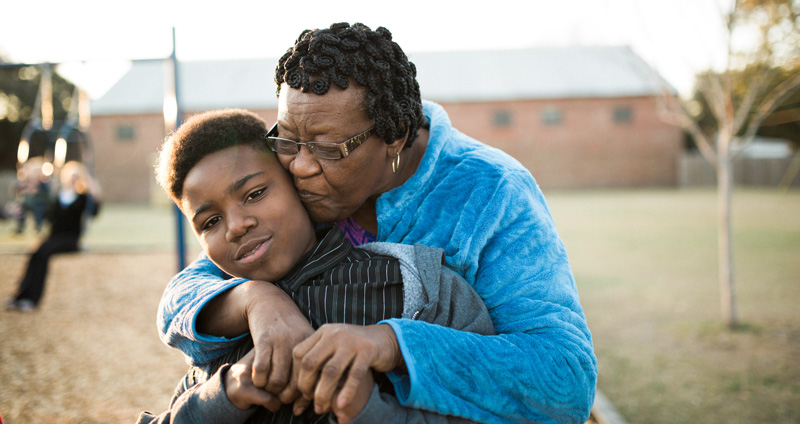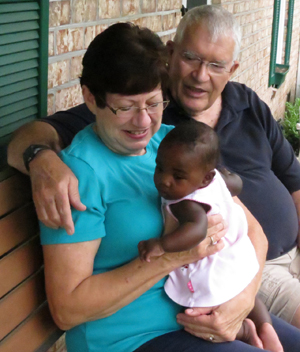
NORTH CHARLESTON–Thousands of people in South Carolina are raising non-biological children. They are primarily grandparents, but also aunts, uncles, siblings and family friends who step in to help these children when their parents can’t take care of them.
Families like this are providing what is called “kinship care,” and they are one of the fasting growing family demographics in the state and nationwide.
Helping and Lending Outreach Support (HALOS) is a beacon of hope for these families in the Charleston area. The organization, based in North Charleston, works with about 300 families a year in Charleston, Dorchester and Berkeley counties.
HALOS will soon be able to expand its service to kinship families thanks to a second year of funding from the Sisters of Charity Foundation in partnership with the Duke Endowment.
The funds will be used to hire a success coach and volunteer coordinator, plus training classes and emergency funds for these families.
“Kinship care is very unique in terms of the family dynamic compared to biological or foster families,” said Kim Clifton, executive director of HALOS. “Kinship care is often the best option for kids over foster care, but there are special obstacles and challenges that these families face.”
Clifton said studies show that kinship caregivers tend to be older adults and most of them are from lower income brackets. The most recent census data showed 51,000 children in South Carolina are living in kinship households.
HALOS works with these families from the very first day they form. Grandparents and other relatives often take in children with little advance warning, sometimes picking up newborns from hospitals. They need basic items like cribs, car seats and baby gates, and the organization helps provide these along with other emergency needs such as grocery gift cards.
“A kinship caregiver may take in children for what they think is going to be 45 days or so, and it turns into a year or more,” Clifton said. “They are not like foster parents who have applied for it and planned for it, and set up their home. This is often a split-second emergency decision.”
Client advocates also help kinship families apply for and receive benefits for the children in their care, and they offer home visits. HALOS also runs monthly support groups so men and women leading kinship households can meet and talk with others in similar situations. HALOS received 160 new referrals in 2016, which yielded 126 new client families.
Support from the Sisters of Charity Foundation comes in tandem with a statewide Kinship Care Initiative that the foundation formed in 2014. The initiative’s goal is to provide grants and financial resources for groups like HALOS that are working with kinship families around the state.
Photo provided: Delores Wright, of North Charleston, hugs her grandson Errick. She adopted Errick and his brother Shawn when they were infants, and they have been involved with HALOS for about eight years.



